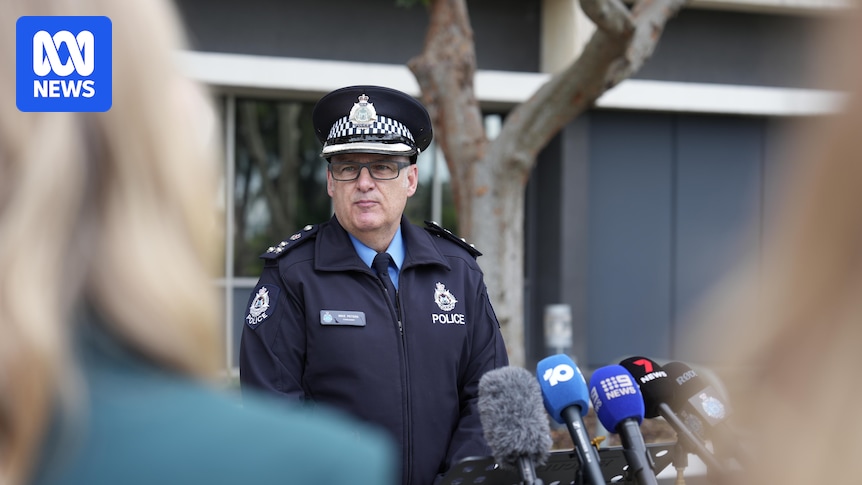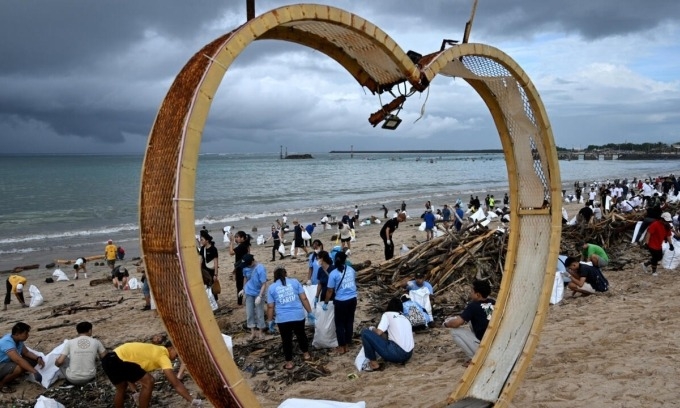
In a devastating 24-hour period, five individuals lost their lives in separate crashes across Western Australia, pushing the state’s road toll to its highest year-to-date level in a decade. The grim milestone has prompted urgent calls for increased road safety awareness as the community grapples with the rising number of fatalities.
WA Road Safety Commissioner Adrian Warner and WA Police Road Policing Commander Mike Peters have both voiced their frustration over the situation, urging all road users to take responsibility for their actions. “It’s incredibly frustrating that we have these sustained levels of deaths on our roads,” Commissioner Warner stated, emphasizing the need for a collective wake-up call at the start of the school holidays.
Tragic 24 Hours on WA Roads
The series of tragic incidents began at approximately 3 p.m. on Thursday when a 70-year-old motorcyclist was killed after colliding with a tow truck at an intersection in Australind, located in Western Australia’s South West. The following morning, just before 6 a.m., a 40-year-old man died in a collision with a truck towing three trailers in Mariginiup, an outer northern suburb of Perth.
Within the same hour, at around 6:35 a.m., a car struck a 51-year-old pedestrian in Mundaring, an eastern suburb of Perth, resulting in the man’s death at the scene. Four hours later, in Serpentine, south-east of Perth, another male driver perished when his 4WD struck a tree and caught fire.
The final fatality occurred around 2:30 p.m. when a 64-year-old woman, a passenger in a car that collided with a tree in Alfred Cove, was taken to the hospital with severe injuries and later succumbed to them.
A Decade High in Road Fatalities
As of this time last year, Western Australia had recorded 93 road deaths. This year, the number has risen to 103, marking the highest figure in at least a decade. This figure is expected to increase when the Road Safety Commission updates its statistics to include the recent fatalities.
The WA Government has outlined a road safety strategy with a target to reduce the number of people killed or seriously injured by 50 to 70 percent by 2030. Despite the state’s growing population, which is estimated to increase by around 3 percent annually, Commissioner Warner noted that the annual road death toll has plateaued.
“Population growth and economic growth, which is good for our community and good for WA, is putting upward pressure on the road toll,” he said. “So everything we’re doing — safer vehicles, constant enforcement — that’s keeping a lid on it. But it’s keeping the lid on a simmering pot … and we need to get it to move down.”
The Broader Impact of Road Fatalities
Commander Peters highlighted the far-reaching impact of road fatalities, noting that the loss extends beyond the immediate victims. “That’s five people that won’t be at Christmas this year and five doors that had to be knocked on by our officers in the WA Police Force to make those absolutely tragic notifications,” he said.
He reiterated that factors such as speed, seatbelts, fatigue, alcohol and drugs, and distraction are consistently over-represented in road crashes. Although he did not specifically attribute these factors to the recent fatalities, he emphasized their prevalence in the overall road death statistics.
As the school holidays commence, Commander Peters affirmed the increased police presence on the roads. “The West Australian Police are out in force this weekend, like they are every weekend, but because it’s school holidays, we have a heightened level of enforcement,” he stated.
Innovative Measures and Future Steps
Since January, the WA Government has been trialing new AI technology cameras at over 100 locations across Perth to detect poor driving behavior. These cameras, described as the most advanced in the country, are currently in a trial phase, issuing only cautions. However, fines are set to be implemented in October, which authorities hope will lead to significant changes in driver behavior.
“When we move into enforcement mode with these new cameras in a couple of months, we’re expecting a big shift in behavior,” Commissioner Warner said. “We don’t want the money. We want people to change their behavior and save lives.”
The recent spate of tragedies underscores the urgent need for heightened road safety measures and personal accountability among road users. As Western Australia grapples with this decade-high road toll, the focus remains on prevention and the hope that these measures will lead to a safer future for all.






